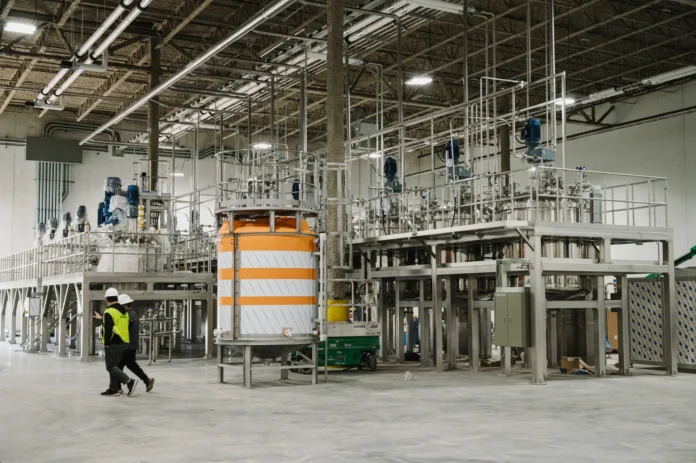Tariff pressure hurts U.S. manufacturing, according to new data from the Institute for Supply Management (ISM). The June report shows the sector shrinking for the sixth straight month. The ISM’s Manufacturing PMI dropped to 48.5 in May, signaling continued contraction.
The survey highlights growing tension in the manufacturing sector. Many businesses blame rising costs and delays on the government’s trade policies. Former President Donald Trump recently announced a plan to double tariffs on steel and aluminum imports. This move added more stress to an already fragile supply chain.
Manufacturers are facing steep input costs and fewer new orders. They also report difficulty in meeting delivery expectations. Even worse, several companies described financial distress among their suppliers. These problems trace back to sudden tariff changes, unstable trade deals, and rising global prices.
Additionally, Trump’s tariffs have created confusion. Some manufacturers say it’s hard to plan operations when policy shifts so frequently. A federal trade court blocked many of the tariffs, but an appeals court temporarily reinstated them. This back-and-forth created deeper uncertainty.
Despite some sectors showing minor growth, overall sentiment remains weak. Seven industries, including furniture and electronics, saw gains. However, others like transportation and primary metals continued to struggle. Equipment makers say customers are delaying orders due to rising costs.
Tariff pressure hurts U.S. manufacturing, but it also spills into other industries. Construction spending dropped in April, especially in single-family homebuilding. Delays in materials and higher costs are impacting timelines and budgets.
Meanwhile, suppliers have started passing tariff costs directly to buyers. Many report that they treat tariffs like a tax—and refuse to absorb them. Rising prices and lower inventories may soon force businesses to restock at higher costs.
The ISM’s supplier delivery index rose to its highest point since 2022. However, longer delivery times now signal bottlenecks, not growth. Port operators have also reported reduced cargo volumes.
Tariff pressure hurts U.S. manufacturing, and unless conditions improve, more job cuts and order delays could lie ahead.
For more updates, visit DC Brief.


